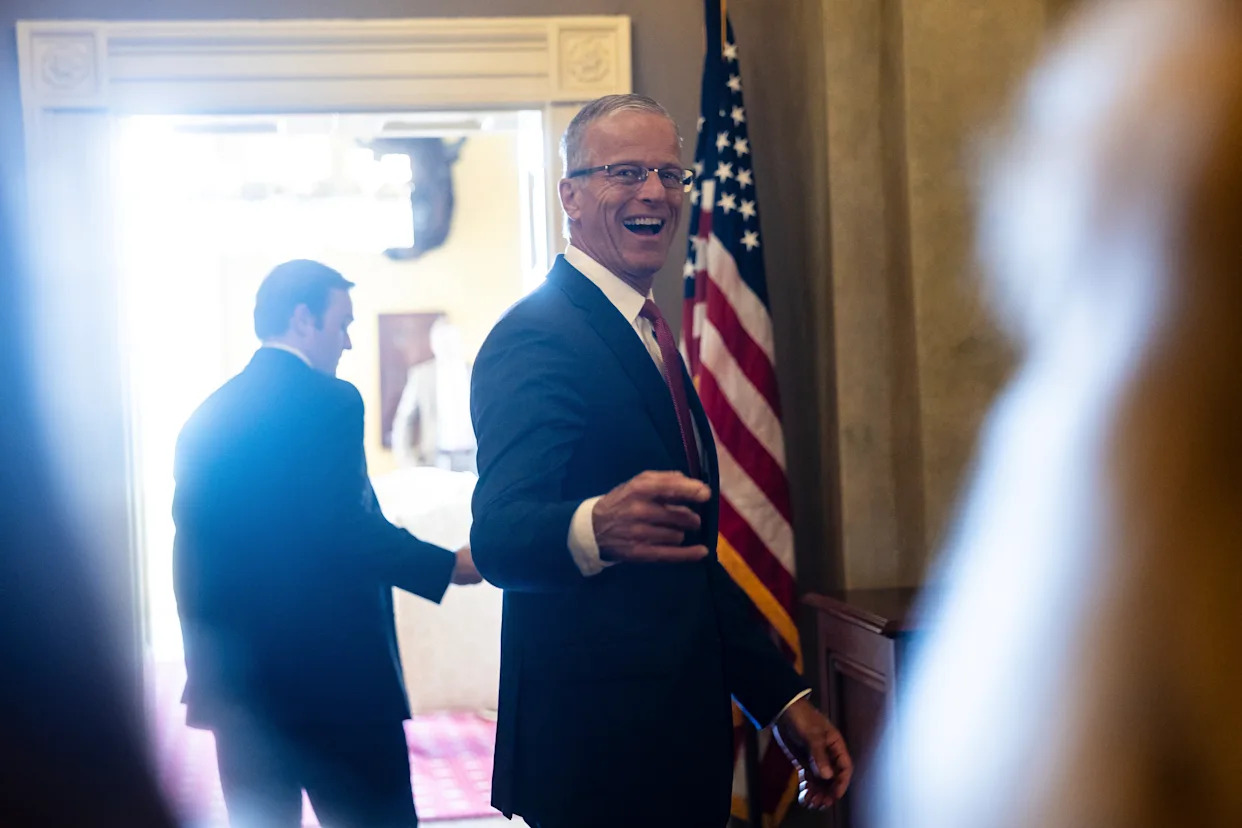UPDATE: The Senate has just approved a controversial plan to cut $9 billion from public broadcasting and foreign aid, following a tight 51-48 vote early Thursday. This move responds to President Donald Trump’s urgent request to claw back funding, igniting significant debate among lawmakers.
Senate Republicans pushed the bill through despite frustrations over the White House’s lack of transparency. Notably, GOP Senators Lisa Murkowski (Alaska) and Susan Collins (Maine) voted against the measure, aligning with Democrats. Meanwhile, Senator Tina Smith (D-Minn.) was absent due to hospitalization.
This vote marks a historic moment, as it is the first time in decades that a rescissions package has been passed by the Senate. The urgency for the bill’s passage is intensified by the need for Trump to sign it by the end of Friday, July 15, 2023, or he risks spending previously approved funds.
“What we are talking about is one-tenth of one percent of all federal spending … but it’s a step in the right direction,” said Senate Majority Leader John Thune (R-S.D.).
The approved cuts significantly impact vital programs, including global health initiatives and public media funding. The original proposal aimed for $9.4 billion, but after negotiations, the figure was adjusted to $9 billion. The administration has vowed to protect certain programs, including PEPFAR, which fights against AIDS, amid bipartisan concerns.
Republicans successfully rejected attempts to amend the bill, maintaining a united front despite some dissent. Senators Mitch McConnell and others voiced their concerns over the lack of specifics regarding which programs would be affected. “Let’s not consider this a precedent,” warned Senate Armed Services Committee Chair Roger Wicker (R-Miss.).
As the political landscape evolves, there are two significant threats looming over Republicans. First, the White House budget director is challenging the Impoundment Control Act, stirring fears about executive overreach. Second, with tensions rising in Congress, Trump’s allies have warned that failure to enact his proposals could fracture support heading into critical funding negotiations this fall.
Senator Collins expressed her reservations about the bill, highlighting the lack of clarity around program reductions. “This package has a big problem – nobody really knows what program reductions are in it,” she stated. Murkowski echoed similar sentiments, emphasizing Congress’s need to assert its authority over budget decisions.
Democrats criticized the bill, arguing it jeopardizes bipartisan efforts needed for future funding negotiations. Senate Minority Leader Chuck Schumer (D-N.Y.) condemned the cuts, asserting that they undermine support for rural Americans, stating, “Republicans are putting a blindfold over their own eyes.”
As the debate unfolds, the House is expected to reconsider the bill later today, with potential implications for future bipartisan agreements. The political stakes are high, as both parties prepare for critical funding discussions in the coming months.
Stay tuned for updates on this developing story as Congress navigates the implications of these funding cuts.


































































